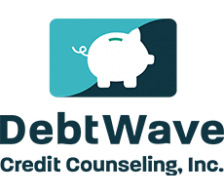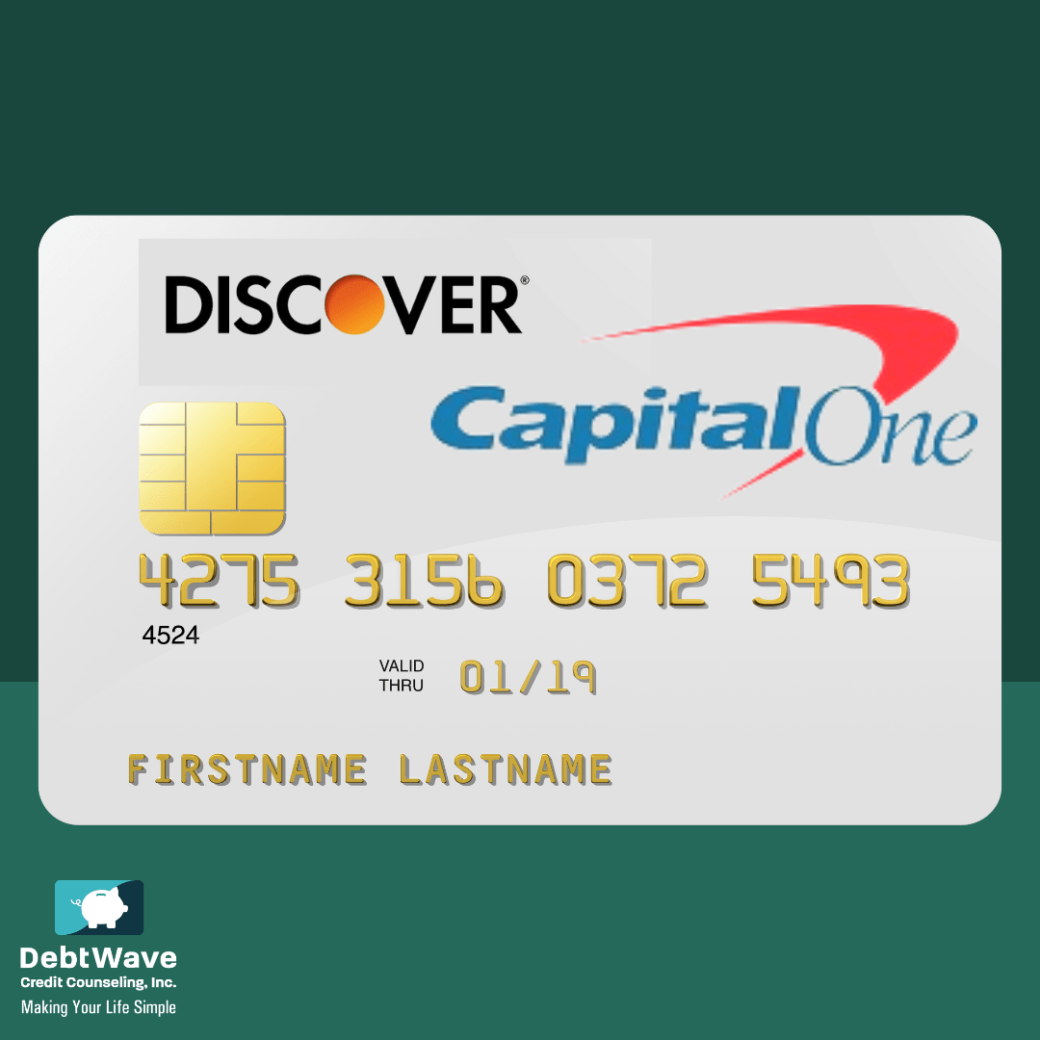Capital One Financial Corp. agreed to buy credit-card lender Discover Financial Services in a $35-billion all-stock deal, the companies announced in a joint statement on Feb. 19, 2024.
Capital One is a credit card issuer that offers cashback and travel credit cards. But Discover is both a credit card issuer and a payment processing network.
The planned acquisition gives Capital One control of and access to revenue made by Discover’s payment network. This means that Capital One can issue credit cards, but still needs to be backed by a processing network, such as Visa, to authorize transactions. Discover can do just that.
Bringing Discover under Capital One could result in a payment network that’s more competitive with Mastercard and Visa.
As a payment network, Discover has always been behind Visa, Mastercard and American Express, credit card expert Jason Steele told CNET. Currently, Discover has 44 million global merchants, much fewer than the other three networks. But this deal could change that.
By moving more of Capital One’s products to an in-house Discover network, Capital One could potentially increase the Discover network’s power and help them get accepted by more merchants. And since both offer banking products, including certificates of deposits and high-yield savings accounts, there could be even more changes to rewards and benefits for card-holders.
However, it could also mean that current Capital One cardholders won’t have their card accepted at many places if it’s on the Discover network at its current size.
But a lot more needs to happen before the deal is final. And even then, the changes won’t happen overnight.
“Initially this potential merger won’t have any impact on consumers,” said John Ulzheimer, credit card expert. “If you have either a Capital One or a Discover card (or both), you will still be able to use them as you used them yesterday.”
But some warn that some benefits and perks may be reduced if not eliminated if this merger goes through.
“If Capital One sees that there’s a bunch of overlap between what they have and what Discover brings to the table, and they want to combine the two instead of keeping them as separate brands, you could end up seeing some of those offers get reduced,” said Matt Schulz, chief credit analyst at LendingTree.
Profiting from Credit Card Debt
There’s still a lot to know about what the move could mean for Discover and Capital One cardholders, including changes to rewards, fees and perks. But one thing we do know is that with its purchase of Discover, Capital One is betting that Americans’ will continue to increasingly use credit cards and acquire credit card debt, which the company will charge interest on.
Capital One has long had a business model looking for customers who will keep a balance on their cards, aiming for customers with lower credit scores than American Express or even Discover.
In the fourth quarter of 2023, Americans held $1.13 trillion on their credit card, according to the latest data from the New York Federal Reserve. As they run up their card balances, consumers are also paying higher interest rates. The average interest rate on a bank credit card is roughly 21.5 percent, the highest it’s been since the Federal Reserve started tracking the data in 1994.
Capital One to Acquire Discover
Combined, Capital One and Discover would form the largest credit card company in the U.S. based on outstanding loan balances. Together, they have $257 billion in outstanding credit card loans, MarketWatch reported. In comparison, the country’s largest bank, JPMorgan Chase, has $211 billion in outstanding loan balances.
“Our acquisition of Discover is a singular opportunity to bring together two very successful companies with complementary capabilities and franchises, and to build a payments network that can compete with the largest payments networks and payments companies,” Capital One CEO Richard Fairbank said.
The deal is expected to close in late 2024 or early 2025, depending on regulatory and shareholder approvals at both companies. Experts expect it would take at least a year, potentially longer for the full consumer impact to come into view.
It’s unclear whether the deal will pass regulatory scrutiny.
Nearly every bank issues a credit card to customers but few companies are credit card companies first, and banks second. Both Discover — which was long ago the Sears Card — and Capital One started off as credit card companies that expanded into other financial offerings like checking and savings accounts.
Consumer groups are expected to put heavy pressure on the Biden Administration to make sure the deal is good for consumers as well as shareholders.
“All sides seem pretty confident that it will get approved,” said Matt Schulz, chief credit analyst at loan comparison site LendingTree.. “However, there’s no question that a deal of this magnitude in an industry that has been the focus of a lot of scrutiny from the Biden administration and the CFPB (Consumer Financial Protection Bureau) will certainly get a thorough look-over before it is signed off on.”
If the deal goes through, it could shake up the credit card and payment network industry, experts say, which is currently led by a duopoly made up of Visa and Mastercard. American Express is a distant third leader in the sector.
The merger would also leave consumers with fewer options in the marketplace at the same time that they’re dealing with higher debt and interest rates. The top 30 credit card companies comprise about 95 percent of Americans’ credit card debt, according to BTIG, a global financial services firm.
Consumer advocates and some lawmakers are already raising questions about how a shrinking credit card market dominated by a handful of large players could affect credit-card users — many of whom are already under pressure from high interest rates and record debts.
A recent report from the Consumer Financial Protection Bureau found that the 25 largest credit card issuers charge customers interest rates eight to 10 points higher than small- and medium-sized banks and credit unions.
The credit card industry has pushed back on accusations that it isn’t sufficiently competitive. A banking industry group said last week in response to the CFPB’s report that borrowers have plenty of card terms, perks and features to choose from.
“The deal also poses massive antitrust concerns, given the vertical integration of Capital One’s credit card lending with Discover’s credit card network,” said Jesse Van Tol, president and CEO of the National Community Reinvestment Coalition.
Blocking the deal could also be seen as helping Visa and Mastercard.
Both Visa and Mastercard grew their revenues by 11 percent and 12.5 percent, respectively, between late 2022 and the end of last year thanks to strong consumer spending.
The four biggest card brands — Visa, Mastercard, American Express and Discover — saw more than $10 trillion in purchases in 2023, up 6.4% from the year before, according to the Nilson Report.
“This marketplace that’s dominated by the big players is going to shrink a little bit more now,” said Matt Schulz, chief credit card analyst at LendingTree.
If it goes through, the deal could further whittle down customers’ options to shop around for the best credit card, warned Adam Rust, director of financial services at the Consumer Federation of America, a national network of consumer advocacy groups.
“We should be worried about the functionality of the credit card market in general. This merger probably heightens that,” Rust said.
If the Capital One-Discover deal isn’t blocked, some credit card rates may well be lower by the time it’s completed, with the Federal Reserve expected to begin cutting interest rates later this year.
But borrowers shouldn’t wait to pay down any existing high-interest debt, said Greg McBride, chief financial analyst at Bankrate. “It’s going to stay high-cost credit card debt, regardless of who acquires whom,” he said
Nonprofit Credit Card Debt Help
One option for consumers who find their credit card debt is starting to spiral out of control is to work with a nonprofit consumer credit counseling service like DebtWave Credit Counseling, Inc.
Credit counseling is designed to help consumers of all financial backgrounds, avoid bankruptcy and stop living paycheck-to-paycheck.
Since 2001, DebtWave Credit Counseling has worked closely with thousands of Americans to help them pay off credit card debt, create a savings strategy, and learn to implement healthy personal finance habits into their daily lives.
As a 501(c)3 nonprofit organization, DebtWave offers a free confidential budget analysis with a certified credit counselor to help consumers develop a workable budget for your financial situation, as well as share advice on how to better manage your finances and reduce debt over time.
DebtWave also offers financial education programs and a Debt Management Program to help you pay off your credit card debt in three-to-five years by working with your creditors directly to reduce your interest rates. In some cases, plans may extend beyond five years.
While it’s true that approximately 39 percent of Americans have credit card debt, that’s no reason to not pay off your debts. Avoiding credit card debt is especially damaging because interest charges and late fees pile up quickly, making it even more difficult and costly to become debt-free.
Nonprofit consumer credit counseling is a great way to begin your journey toward financial independence. Whether you’re looking for assistance paying off debt, looking to repair your credit, or learning how to create and utilize a budget to your financial advantage, DebtWave Credit Counseling is here to help.
When you call DebtWave Credit Counseling, Inc. for a free credit counseling session, you’ll speak one-on-one with a certified credit counselor about your finances for about 60 minutes.
During the call, a financial counselor will pull a soft inquiry on your credit, meaning it won’t have a negative impact on your credit score, but will allow your credit counselor to view your liabilities, account statuses, and credit score. Your financial counselor will also inquire about your financial goals, income, expenses, and debts, in order to provide general personal finance advice including advice on budgeting and managing money.
Monthly expenses your financial counselor may inquire about include:
- Net Income
- Mortgage/Rent
- Auto Loans
- Student Loans
- Credit Cards (balances, interest rates)
- Groceries
- Gas
- Internet
- Cell Phone
- Insurance
- Subscription Services (Netflix, Amazon, Hulu, Disney+)
In instances in which a consumer has medical debt, student loans, and/or credit card debt, a financial counselor will share all possible options for paying off that debt.
Options financial counselors will discuss for paying off debt include:
- Handling the debt on your own
- Declaring bankruptcy
- Enrolling into a Debt Settlement Program
- Liquidating your assets
- Enrolling into a Debt Management Program
As part of sharing your options for paying off debt, your financial counselor will share an estimated payoff date, as well as estimates for the total money paid, including interest, in order to pay off that debt.
Solutions vary because each consumer will have varying levels of debt, expenses, and financial goals.
While consumers without debt are encouraged to be proactive about their financial situation by reviewing their budget and financial goals with a certified credit counselor, the bulk of consumers who take advantage of credit counseling services do have credit card debt.
Even if your credit card debt seems manageable, asking a financial counselor to explain credit card terms or assist you in making a budget to avoid financial disaster in the future is highly encouraged.
To schedule a complimentary budget analysis with one of DebtWave’s nonprofit certified credit counselors, get started online or call 888-686-4040 to begin your journey toward financial freedom.


